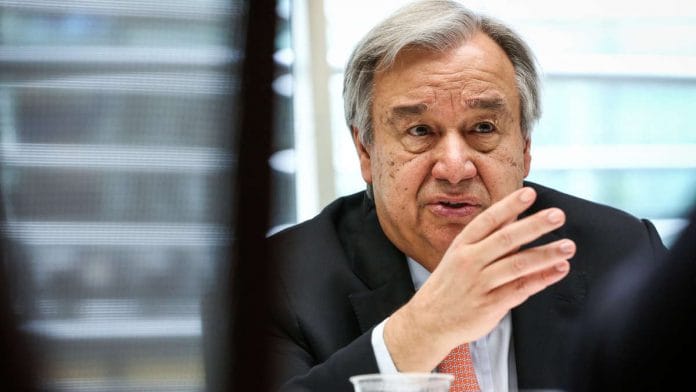From the exercise of global power to racism, gender discrimination, and income disparities, all such ideas threaten our wellbeing as well as our future. We desperately need to think of new ways to halt and reverse this inequality.
We often hear that a rising tide of economic growth lifts all boats. But in reality, a rising tide of inequality sinks all boats. High levels of inequality have created the global fragility that is being exposed and exploited during the Covid-19 pandemic.
The coronavirus has shone a spotlight on inequalities of all kinds. It poses maximum risk to the health of the most vulnerable, and its social and economic impact is concentrated on those who are least able to cope. Unless we act now, 100 million more people could be pushed into extreme poverty, and we could see famines of historic proportions.
Also read: Hunger and obesity are both getting worse around the world due to Covid fallout
Tipping point of inequality
Even before Covid-19, people everywhere were raising their voices against inequality. Between 1980 and 2016, the world’s richest 1 per cent have captured 27 per cent of the total cumulative growth in income. But income is not the only measure of inequality. People’s chances of succeeding in life depend on their gender, family, ethnic background, race, whether or not they have a disability, and several other factors. Multiple inequalities intersect and reinforce each other across the generations, defining the lives and expectations of millions of people before they are even born.
For instance, more than 50 per cent of 20-year-olds in countries with very high human development are in higher education. In low human development countries, that figure is 3 per cent. Even more shocking, nearly 17 per cent of the children born 20 years ago in those countries have already died.
The anger fueling recent social movements, from the BlackLivesMatter and anti-racism campaign that has spread around the world in the aftermath of George Floyd’s killing, to the #MeToo movement, which featured a chorus of brave women calling out the powerful men who have abused them, is yet another sign of utter disillusionment with the status quo. And the two seismic shifts of our age – the digital revolution and the climate crisis – threaten to entrench inequality and injustice even more deeply.
Also read: On World Population Day, a look at Covid’s impact on women’s safety, employment and health
Covid as catalyst for change
Covid-19 is a human tragedy. But it has also created a generational opportunity to build a more equal and sustainable world, based on two central ideas: a new social contract, and a new global deal.
A new social contract will link together governments, their people, civil society organisations, businesses and others in common causes.
Education and digital technology must act as the two great enablers and equalisers, by providing lifelong opportunities on how to learn, to adapt and take on new skills in the knowledge economy.
We need fair taxation on income and wealth, and a new generation of social protection policies, with safety nets that include universal health coverage and the possibility of a universal basic income extended to everyone.
Global deal for social contract
To make the new social contract possible, we need a new global deal to ensure that power, wealth and opportunities are shared more broadly and fairly at the international level.
The new global deal must be based on a fair model of globalisation, on the rights and dignity of every human being, on living in balance with nature, on respect for the rights of future generations, and on success measured in human rather than economic terms.
We need global governance that is based on full, inclusive and equal participation in global institutions. Developing countries must have a stronger voice, from the United Nations Security Council (UNSC) to the boards of the International Monetary Fund (IMF), the World Bank and beyond.
We need a more inclusive and balanced multilateral trading system that enables developing countries to move up global value chains.
Reform of the debt architecture and access to affordable credit must create fiscal space to generate investment in a green, equitable economy.
The new global deal and the new social contract will put the world back on track to realise the promise of the Paris Agreement on Climate Change and achieve the Sustainable Development Goals — the globally-agreed vision of peace and prosperity to be achieved by 2030.
Our world is at breaking point. But by tackling inequality, based on a new social contract and a new global deal, we can find our way to better days ahead.
The author is the United Nations Secretary-General. Views are personal.
Also read: Don’t write off the UN, Covid is just the kind of global crisis it was set up to fight






